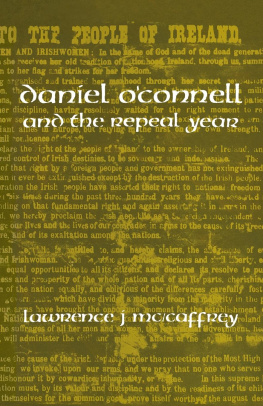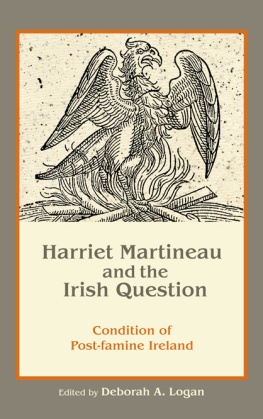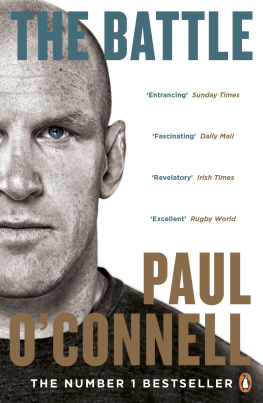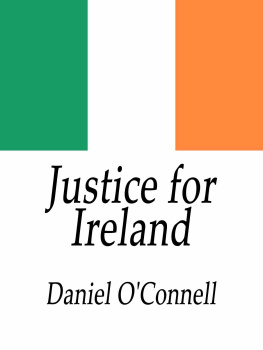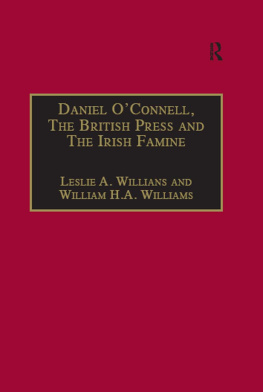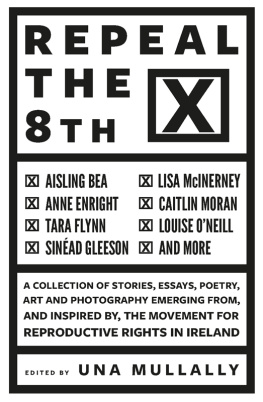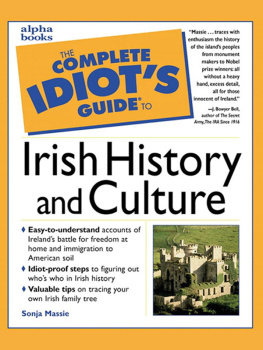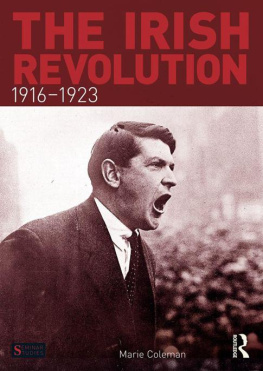COPYRIGHT 1966 by the University of Kentucky Press. Manufactured in the United States of America. Library of Congress Catalog Card No. 65-27011.
Preface
DANIEL OCONNELL remains a neglected man of Victorian history, although he was the most discussed figure of his time. Members of the British Establishment despised this Irish demagogue. Their newspapers and periodicals described him as a mendacious, avaricious vulgarian agitating nationalism to collect contributions from ignorant and impoverished Irish peasants. The British public was told that OConnell was the leader of a vast conspiracy dedicated to subverting the British Constitution by imposing Popery on the British Isles. He was the principal target of no-Popery sentimentthe basic ingredient in British nativism. The aristocracy all over the Western World viewed him as a menace to privilege, and liberals and democrats considered him their champion. He was the symbol of hope for those attacking the Metternich system. In 1829 he had confronted the British aristocracy on the Catholic emancipation issue, and he had left the field victorious.
OConnell deserves the attention of historians because he was the most controversial man of his time and because he presents an interesting case study in public opinion and image and in political legend and symbol. But OConnell was more than an image, a symbol, or a legend. He was an active politiciana shaper of institutions, political parties, public opinion, issues, and events. No man had more of an impact on Victorian Britain and Ireland. He mobilized the Irish masses and created modern Irish nationalism. From the period of OConnells entry into politics until the creation of the Irish Free State the Irish Question was the most important emotional issue dividing British political parties and British public opinion. He gave lessons to British politicians in the techniques of organization and agitation. His successors in the leadership of Irish nationalism continued the instruction. They demonstrated the effectiveness of a disciplined parliamentary party always ready to exploit a balance of British parties to extort reform legislation.
Any thorough evaluation of the personalities shaping Victorian Britain would have to rate OConnell equal to Peel, Gladstone, Disraeli, or Parnell. But his greatness was European as well as British and Irish. In a period when liberals, democrats, and nationalists challenged the Metternich system he created a nationalist movement that won substantial victories over the forces of status quo, privilege, and aristocracy. His triumphs encouraged and inspired leftists and nationalists in France, the Germanies, the Italian States, and the Hapsburg Empire. And because Irish nationalism was to inspire and influence liberation movements in Asia and Africa, OConnells importance extends beyond the frontiers of Western civilization.
Since it is obvious that OConnell was a major factor in molding modern Irish, British, Continental and even global history, why has he not attracted sufficient consideration from historians, particularly the scholars of Britain and Ireland? British historians are perhaps still touchy about the Irish Question and its relation to no-Popery and probably find it difficult to cope with Irish personalities, particularly complex ones like OConnell. The leading British Victorian politicians were Protestants from the aristocracy or upper middle class who shared a common educational experience. Their styles and assumptions were for the most part similar. OConnell was a Catholic with a Continental education, a clan chieftain, a peasant hero, a demagogue, an artist in vituperation, and the pragmatist supreme. Any analysis of his character, virtues, achievements, and influence demands a different set of standards than one can apply to persons like Peel and Gladstone.
However, a politicians reputation is primarily the responsibility of his own countrymen, and in contemporary Ireland OConnell does not seem to rank in the pantheon of heroes with Parnell, the Fenians, the men of 1916, or the leaders of the 1919-1922 period. His reputation has become a victim of a conflict of ideology within Irish nationalism. The Young Irelanders created an image of OConnell entertained by many present-day Irishmen. They held the position that OConnells post-1829 control over the forces of Irish nationalism injured the prospects for self government. They argued that his pacifism, acceptance of British constitutional methods of agitation, willingness to compromise Repeal of the Union for reform legislation, alliance with and confidence in the Whigs, jealousy of talented young nationalists, complete trust in the decisions of his mediocre but ambitious son John, and loyalty to old comrades weakened the national cause and demoralized the Irish masses in time of crisis.
As long as constitutional methods of agitation held a promise of independence OConnell retained the affection and respect of those committed to Irish nationalism. But in 1914 constitutional nationalism and the third Home Rule bill fell victim to Liberal compromise and timidity, British no-Popery, and Ulster Protestant nativism allied with Tory ambitions for power. Then physical force republicanism took charge of Irish nationalism and in 1921 won an independent parliament for twenty-six Irish counties. With the victory of physical force, the Young Ireland image of OConnell as a symbol of ineffective constitutional agitation captured the imagination of the revolutionary and post-revolutionary generations. The efforts of Sean OFaolain, Denis Gwynn, Michael Tierney, and others to rehabilitate the reputation of the father of Irish nationalism has failed to erase the partisan portrait presented by Charles Gavan Duffy, John Mitchel, Michael Doheny, and their twentieth-century disciples. Historians are still faced with the task of presenting a balanced interpretation of OConnellone which will indicate his significance for modern Irish and British history. But to do justice to OConnell, they will also have to place him within a European as well as an Irish and British context.
This book, then, is both an effort to focus attention on a man shortchanged by historians and an attempt to demonstrate the impact of OConnell and Irish issues on British history. It deals with one of the most controversial episodes in OConnells career, the Repeal agitation of 1843. In October 1843 OConnell canceled the Clontarf Monster Meeting to avoid a clash with British troops. This decision antagonized the Young Irelanders in the Loyal National Repeal Association and inspired much of the criticism they directed at OConnell. They argued that his failure to meet the challenge of the British Government destroyed the Repeal movement at the summit of its influence and demoralized the Irish masses. Duffy, Mitchel, and Doheny accused the Repeal leader of misleading and betraying the Irish people in 1843.1 They emphasized OConnells 1843 speeches, particularly the Mallow Defiance, to prove that he gave the Irish masses the impression that he would resist any British Government effort to crush Repeal. The Young Irelanders insisted that if OConnell was not prepared to lead a rebellion to preserve the Repeal movement he should not have asked the Irish people to endorse and support the agitation. They also argued that even the slaughter of Repealers at Clontarf would have been better than surrender to a Government ultimatum. Duffy went so far as to suggest that the enthusiasm, the high morale, and the discipline of Repealers would have been more than a match for the armed and trained British army.

